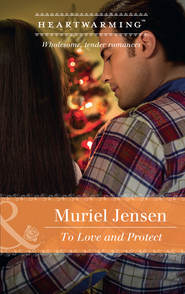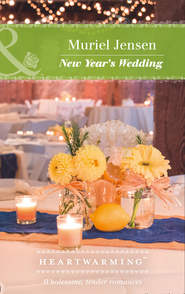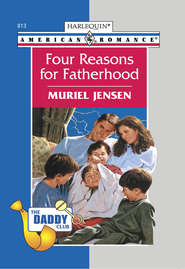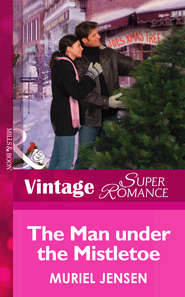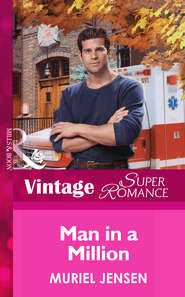По всем вопросам обращайтесь на: info@litportal.ru
(©) 2003-2025.
✖
Always Florence
Автор
Год написания книги
2019
Настройки чтения
Размер шрифта
Высота строк
Поля
Sheamus’s blue eyes were huge. “You mean like on the card Stella gave us? With the bugs and bat wings going into the witch’s pot?”
“Yeah. Just like that. Only this lady’s probably got kid parts in there, too.”
Sheamus’s eyes got wider. “What kids?”
“I don’t know. Kids she kidnapped and locked in her house.”
Sheamus stood up, getting panicky. Arnold got up with him. Dylan’s plan was starting to work. He felt a twinge of guilt, but it was easy to get past that. Sheamus had blond hair like their mom and his eyes were the same color hers had been. It was easy to hate him.
He yanked his brother back down again. Arnold stood poised for action. “It’s all right. She won’t want you. Only brave kids go into the pot, because the potions are to make big things happen. Like explosions and lightning. It doesn’t work with fraidy kids.”
Sheamus’s eyes brimmed with tears and his lip quivered. Dylan knew his brother was curious to know what the woman was doing, but too afraid to find out. He pointed to the big bush at the edge of the driveway, very near the garage. “Let’s go get a closer look.”
“No!” Sheamus tried to grab his arm, but Dylan shook him off. He waited until the woman leaned the stirring stick against the pot and turned to get a glass of something red from a shelf behind her. Then he covered the distance in a military crouch.
Unfortunately, at the same moment a big orange cat leaped onto the shelf near the woman’s drink. Uncle Nate said mastiffs were usually lazy, but Arnold was half Labrador retriever, and Labs never missed an opportunity to cause trouble.
Arnold leaped for the cat with an excited bark. The woman fell back against the shelf and screamed. The red drink flew, the cat screeched and the sound of tumbling lumber filled the air as woman and shelf crumpled together. Dylan heard Sheamus run for the house, yelling for their uncle.
He should have run, too, but he was stunned by how much destruction that one leap had caused. Before he could plot his escape, he was hauled to his feet by a hand that wasn’t much bigger than his, but very strong. The hat had come off the woman’s head and the red stuff was running down her face. She had brown eyes that looked mad.
Great. He was probably facing another night without his Game Boy when his uncle heard about this.
* * *
NATE RALEIGH PACKED the dishwasher and thought back to what Saturday mornings used to be like, back in the Portland Pearl District. Actually, he’d slept through them, because Friday nights had been all about dating and the Brody Theater, dinner at the Park Kitchen and friends going back with him to his condo looking over the river.
Saturdays hadn’t begun for him until lunch at the Dovetail Bakery with a client who had some payroll or accounting issue that couldn’t wait until Monday. He’d prided himself on being able to resolve them, or if not, he’d mull over possible solutions with his brother. Ben always had an answer.
God, Nate missed him. And not just as a partner at Raleigh and Raleigh Accounting Services. Mostly he wished his brother was here to tell him how to deal with his boys....
Ben had been two years older than Nate and the kind of kid, and then man, who seemed to know instinctively what to do about everything. Of course, it had been more than instinct. In school, he’d studied all the time and done extra work because he found everything about accounting and finance exciting.
As an adult, his gift in the field had taken their small tax-return business in a strip mall to the fourth floor of an elegant downtown Portland office complex, where they offered a multitude of accounting and estate planning services. They eventually opened an Astoria office on the Columbia River and two more down the coast.
Pain stabbed at Nate. As an anniversary gift, he’d given Ben and Sherrie the charter fishing excursion that had ultimately taken their lives. Guilt, combined with a terrible loneliness and a dark anger he couldn’t shake, were braided into a sort of barbed-wire band around his chest.
He had to fight his way through every day. He usually managed to put the pain and loneliness aside, but the anger was always there. That was the hardest to deal with. He’d been the cheerful Raleigh, the charmer, the one who saw the upside of life.
Now he was mad all the time. He understood the source of his anger, but seemed powerless to overcome it. He was mad at Ben for dying, mad at himself for having given him a gift that placed him in harm’s way and not knowing how to cope with that, and mad at the boys because they reminded him of Ben and him all those years ago.
He was able to live day to day without yelling at everyone, but suppressing the inclination was exhausting. He didn’t know what to do about it, so he just kept going—sad, mad and, much as he hated to admit it, a little lost.
Nate added soap to the dishwasher, let the door close with a slam, and set the dial. “Suck it up, buttercup,” he told himself.
Saturday nights, he recalled, continuing to torture himself, had pretty much been the same as Fridays, but Sundays had been about football at Fernhill Park, then pizza and beer at Mississippi Pizza.
Now, Stella Bristol prepared most of their meals. She was Hunter Bristol’s mother. Hunter had helped run the Astoria office of Raleigh and Raleigh with Ben before Nate had given Ben and Sherrie the charter boat trip to celebrate their thirteenth wedding anniversary. They’d met aboard a similar boat fifteen years previously. Nate had volunteered to stay with the boys so that his brother and sister-in-law could enjoy a romantic dinner and watch the sunrise as they’d done the night they met.
Instead, a sudden squall and the captain’s belated decision to return to port had resulted in the loss of the boat and everyone aboard. One of the witnesses to the sinking had said that Ben dived under the boat over and over, presumably in search of Sherrie, and finally just didn’t come up again.
Nate stayed with the boys in their home and took his brother’s place in the Astoria office. And the life he’d known was gone forever.
That was all right. He knew his nephews had lost far more than he had, but the life he’d led had not prepared him for the life he’d inherited.
The accident happened to coincide with Stella’s recovery from hip replacement surgery, and a desire to find useful work. She had no nanny experience, but she’d kept house and raised children. Nate figured that qualified her.
He just wished he felt more comfortable in his position as stand-in father. He’d gotten along so well with the boys when he’d simply been their uncle. Now that he had to make rules, they didn’t like him. Stella reminded him over and over that parenthood wasn’t a popularity contest, but he could see grief in their young eyes and hated the knowledge that he seemed to exaggerate it rather than relieve it. He strove to keep the anger he struggled with himself out of his voice and his touch, but in the end the boys had their own anger issues to deal with.
He awoke every morning determined to do better that day. Usually, he was shot down by 10:00 a.m. Either he got in the way of one of Dylan’s MythBusters-wannabe experiments that was eventually going to kill them all, or Sheamus burst into tears because Nate sent him back upstairs to get his jacket before letting him out to play. Sheamus was convinced there was a monster in his bedroom closet.
They’d at least reached a temporary solution for the monster issue by putting Sheamus’s jacket in the downstairs closet.
Nate picked up toy cars and trucks off the living room floor and was about to put them in a big wooden box next to the fireplace when he heard Sheamus’s shrill shout: “Uncle Na-a-ate!”
It had taken Nate a month in his role as guardian to realize that the boys’ bloodcurdling shouts didn’t necessarily mean death or dismemberment. They might just want a banana or a pudding pop. So he dropped the toy vehicles carefully into the box and was heading for the kitchen when the door burst open and Sheamus appeared. His blond hair stood up in spikes. His blue eyes were filled with terror.
He pointed a grimy finger in the direction of the backyard. “The witch’s got them!” he said breathlessly, his bony chest heaving under his Seattle Mariners sweatshirt. To add emphasis, he grabbed Nate’s arm and pulled him toward the door. “Hurry!”
“What witch?” Nate drew Sheamus back to him, then got down on one knee. “And got who?”
“The witch next door! Dylan and Arnold! She’s not just a lady, she’s a witch! And she’s stirring a pot with bat wings and spiders and feet from little kids!”
Nate felt a familiar exasperation at his younger nephew’s never-ending terrors. A four-letter word sprang to his lips, but his one success since moving in with the boys was that he’d cleaned up his language.
He caught the weeping seven-year-old by the hand, slapped the back door open and headed across the yard, ready to put an end to this latest fear.
“See!” Sheamus pointed to the little tableau near their neighbor’s garage. The woman, who never spoke to anyone, had Dylan by the arm and was leaning over him, her expression angry.
Nate stopped Sheamus at the edge of their property, dropped his hand and told him not to move, then covered the distance to Dylan and their neighbor in three long strides. He circled the woman’s wrist with his thumb and forefinger, pulled her hand from Dylan and moved the boy behind him.
“Is there a problem?” He tried to sound reasonable, but Dylan looked worried and Nate’s protective instincts flared.
The woman looked up at him in surprise and opened her mouth to speak. No sound came out for a moment, giving him time to study her. She’d been an enigma for the four weeks she’d been here.
She was usually dressed in a baggy black sweatshirt over skinny black pants, and he hadn’t realized until now how slight she was, how pale. It was the first time he’d seen her without a hat pulled down to her eyebrows. Her hair was very short, very dark and all tight little curls. Something red and sticky covered her face, but the overall impression she made was one of fragility.
This was the first time he’d been close enough to look into her eyes. They were wide and brown, with a whole range of emotions he no longer felt qualified to analyze. He’d once prided himself on a respectable knowledge of women, but he hadn’t spent much time with any since he’d moved in with the boys. And he was angry about everything, anyway. As he recalled, women preferred good-natured men.
He did think he saw fear in her velvety gaze, and realizing he still held her wrist in a firm grip, he let it drop. Whatever had happened, he’d be willing to bet his season tickets to the Timbers that it was Dylan’s fault. He handed her a tissue from the wad he’d started keeping in his pocket. “I’m sorry,” he said. “What’s the problem here?”
* * *
BOBBIE MOLLOY ACCEPTED the tissue with a grudging “thank you” and a scolding glance at the dark-haired boy. “It’s not a problem, exactly.” As she wiped her face, her fingertips brushed the fine hair on her head. She looked around for her hat and found it on the ground, covered in grass and raspberry-hibiscus tea. She tossed it at a small table—the only thing nearby that hadn’t been overturned.
“Your son was spying on me,” she explained, “and your pony destroyed several days’ work and tried to kill my cat.” She indicated the collapsed shelf behind her, most of the tools and supplies it had held now floating in her pot of paper pulp. Monet, her orange tabby, looked down on them from the top of the oil tank against the wall, tail swishing. Below him, the giant dog with its black muzzle and wide mouth, black tongue lolling, studied the cat.
Bobbie looked over the destruction. Stress was her enemy, so she drew several steadying breaths. To be fair, the man Sandy had told her was new to the neighborhood—almost as new as her—appeared to be as frustrated as she felt.






